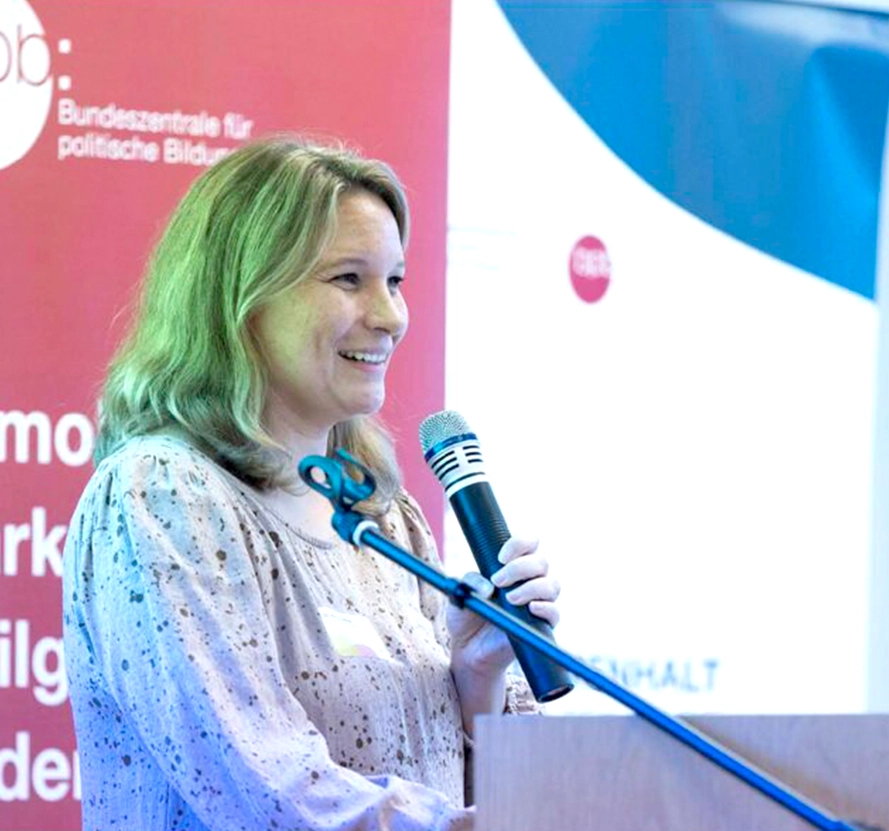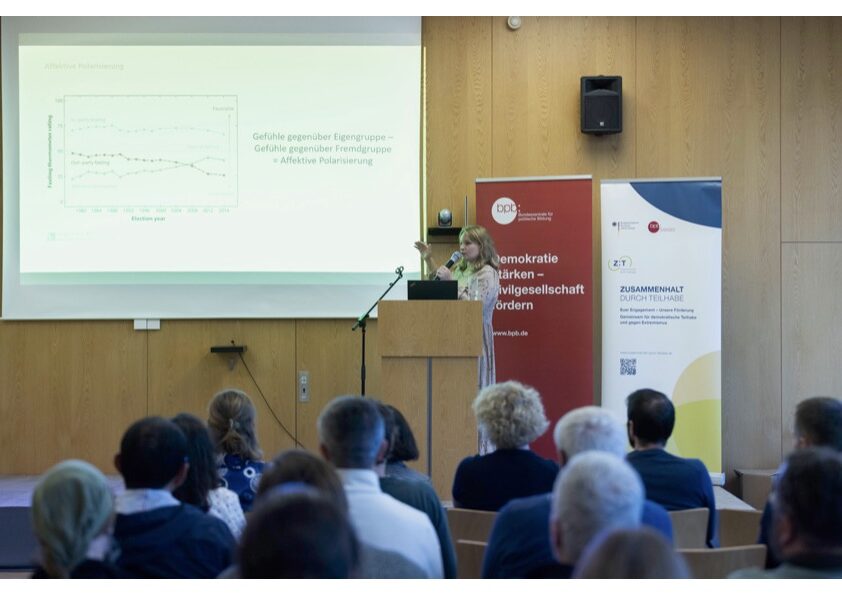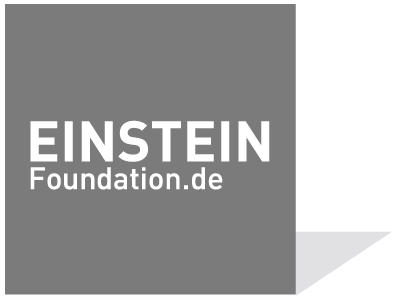Polarization and social division are terms that often raise concern in public debate. But what exactly lies behind the concept of affective polarization, and why do emotions play such a central role in it? Dr. Ronja Demel addressed these questions at this year’s “Nah dran” conference, held on September 25, 2025, in Kassel. The event took place as part of the federal program “Zusammenhalt durch Teilhabe – Program for Democratic Engagement and Against Extremism” and was organized by the Federal Agency for Civic Education (Bundeszentrale für politische Bildung).
In her talk, the psychologist provided a nuanced perspective on the phenomenon of polarization, highlighting its various forms, the functions it can serve in a vibrant democracy, and the points at which it becomes genuinely problematic.
The second part of her presentation focused on approaches and measures that appear promising from a scientific perspective for countering polarization and fostering trust. Dr. Demel particularly emphasized research findings that offer valuable points of reference for the work of civil society actors. The aim of her talk was to share insights from current research and to provide a sound basis for discussion on how polarization can be identified and effectively addressed.




